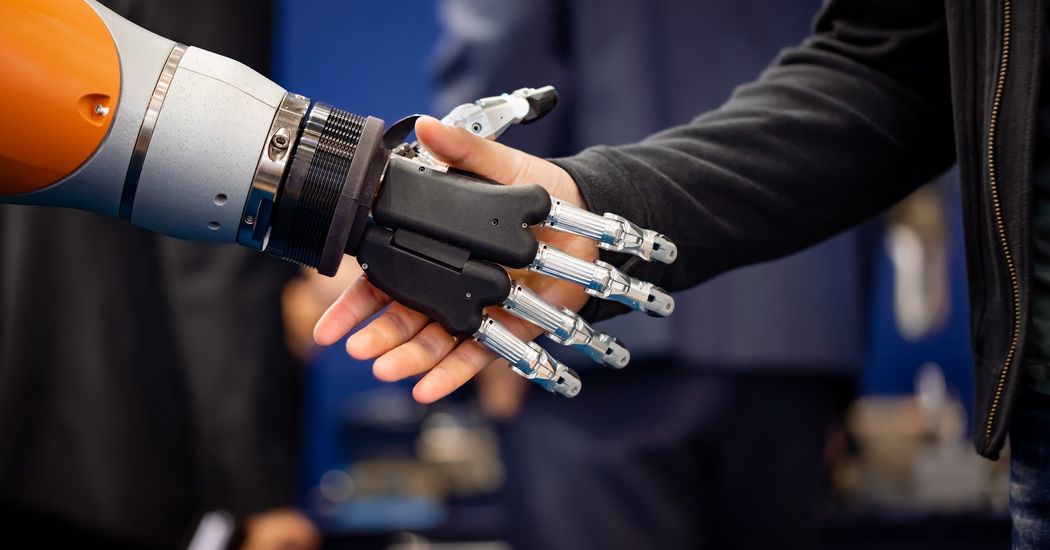How Artificial Intelligence Will Transform Businesses in 2021

There have been several innovations in business technology and process automation over the years. However, none of these technical advances has been as disruptive or progressive as artificial intelligence (AI).
AI is a trend-setting web application that has become significant across numerous sectors and business organizations. Specially This is the case when it comes to reflecting on the potential of technological advances and how they can have an impact. But the use of artificial intelligence is not as recent a phenomenon as many people assume. In reality, many of us communicate through different types of AI daily, even without recognizing it.
What exactly is AI, and how can this be used to turn business processes for the better? Let's take a closer look at the AI environment and the possible benefits and drawbacks that it can produce below.
What is Artificial Intelligence (AI)
In the simplest of concepts, artificial intelligence (AI) is a computer science field that focuses on creating systems and processes that can work and respond in the same way that a human operator can. AI-driven technologies allow computers to exploit vast quantities of structured and unstructured data to perform almost infinite tasks while conducting problem-solving, rationalization, and predictive analysis.
AI consists of many technical elements, each contributing to the solution's overall efficiency and accuracy. AI systems are designed to reverse the characteristics that we have as humans in computers. This includes the development of artificial neural networks, similar to human brains, used to manage and process vast quantities of data in a specific way. Over time, as trends arise on how certain data types are stored or processed, AI-driven solutions may predict the effects of the analysis and continually improve their accuracy.
How is AI transforming modern business?
A significant way for AI technology to transform modern companies is through advanced process automation capabilities. As companies focus on scaling up their operations, reducing operating costs, and enhancing their customer experience, automation of all shapes and shapes is a welcome business aspect. AI-powered systems can track mobile assets such as self-driving semi-trailers or courier vans in near real-time using telematics and on-vehicle sensors, offering substantial safety and cost-saving benefits.
What are the advantages of AI Across Industries?
The implementation of AI into the business world has provided a variety of automation benefits for growing companies. This is the case notably for data scientists who rely on machine learning technology to enhance accuracy and efficiency while performing highly complex and technical business analysis. However, the importance of AI technology is not limited to technology-related industries.
Artificial intelligence systems are used regularly in the human resources, accounting, and even healthcare sectors, where vast volumes of corporate and consumer data are accessed and stored. AI-driven tools can help medical professionals identify and manage their patients quicker and more precisely by processing vast volumes of data faster and more effectively than humans can do. Meanwhile, in HR and accounting departments, AI technologies help simplify redundant and repetitive data entry and reporting activities, increase productivity levels, and boost performance.
Does AI have any Disadvantages?
Although artificial intelligence continues to change businesses in many positive ways, there may be some pitfalls associated with the implementation of these technological solutions:
✎ Higher Implementation Costs: AI-driven systems and new device implementations are usually more expensive than most other SaaS solutions. AI applications take time to create and include third-party consultants or developers to carry the finalized state's solution.
✎ Needs Technological Expertise: More than being complicated at the implementation level, AI applications also need daily human interaction to extract their maximum value. Some organizations may not have the requisite expertise to keep AI applications running efficiently and rely on managed service companies to keep their systems operational.
✎ Too Much Automation: While the automation and productivity advantages of artificial intelligence are hard to deny, there might be some possible downsides of making too many of your business processes automated. For one thing, too much automation reduces the need for human operators to inject their intelligence and fresh insight into the processes being handled by AI-driven technologies. This can harm organizations over time, particularly when they need to remain agile to change.
Artificial intelligence continues to influence the approach of modern companies to their digital transformation strategies. As this technology continues to evolve, companies can no doubt expect even more process automation and productivity while opening new growth and expansion opportunities.
